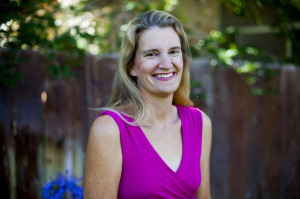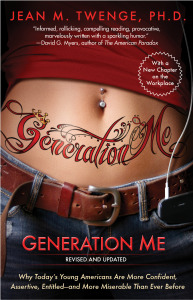
As a population, it seems we’re growing less and less trusting.
Dr. Jean M. Twenge, psychologist at San Diego State University, is studying our growing suspicions.
Jean M. Twenge, Professor of Psychology at San Diego State University, is the author of more than 100 scientific publications and the books Generation Me: Why Today’s Young Americans Are More Confident, Assertive, Entitled — and More Miserable Than Ever Before and The Narcissism Epidemic: Living in the Age of Entitlement (co-authored with W. Keith Campbell). Dr. Twenge frequently gives talks and seminars on teaching and working with today’s young generation based on a dataset of 11 million young people. Her audiences have included college faculty and staff, high school teachers, military personnel, camp directors, and corporate executives. Her research has been covered in Time, Newsweek, The New York Times, USA Today, U.S. News and World Report, and The Washington Post, and she has been featured on Today, Good Morning America, CBS This Morning, Fox and Friends, NBC Nightly News, Dateline NBC, and National Public Radio. She holds a BA and MA from the University of Chicago and a Ph.D. from the University of Michigan.
A Corrosion of Trust
![]()
Do people trust each other more or less than they used to? And how much do they trust corporations, government, and the media?
As we found in survey data from more than 100,000 Americans since the 1970s: not much.
Our economic and political systems depend on us being able to trust each other. Trust – both in individual people and in institutions – is a key part of social capital. Yet Americans are now less likely to agree that “most people can be trusted.” They are also less likely to say they have confidence in crucial institutions. Both reached all-time lows in 2012.
This is fairly surprising – trust and confidence are lower now than they were during the Watergate scandal, the Iran hostage crisis, the violent crime of the early 1990s, the Clinton impeachment, and even the recent Great Recession. How is that possible?
To find out, we looked at how trust and confidence rose and fell with social indicators. We found that trust was low when income inequality was high – so when the rich were richer and the poor were poorer, people trusted each other less. Confidence in institutions was lowest when the poverty rate was high. Income inequality seems to be a key predictor of social capital – and thus the health of our nation.
This study is just the latest on how American culture is different now than in past decades – and thus how today’s young generations are different. These studies often find higher individualism today, with more focus on the self and less on others – which is why I call today’s young people Generation Me. If these trends continue, trust might dip even lower – or it could revive if income equality improves. Only time will tell.
Read More: NY Mag: Nobody in America Trusts Anyone, Says New Study
